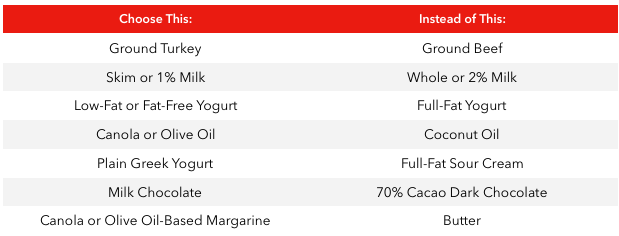Precursor Cells
It doesn’t take much time for a fatty meal to do damage to fat cells. New research suggests that fat cells can be altered by the fatty acid palmitic acid (found in palm oil, dairy products and meat) and tumor necrosis factor alpha (TNF-alpha), a hormone associated with inflammation. Scientists hope this information may help them prevent the development of diabetes (1).Cells that have not fully matured are known as “precursor” cells. These cells have the potential to become muscle, fat, or other cells. When exposed to palmitic acid and TNF-alpha, they become dysfunctional fat cells later in life. Researchers have found that obese individuals with diabetes have undergone this cell reprograming.TNF-alpha is a pro-inflammatory hormone that is elevated with illness, but obese individuals also have higher TNF-alpha levels because excess weight is linked with inflammation (2). Scientists believe that a healthful diet and lifestyle may stave off the production of pro-inflammatory fat cells and that precursor cells may have a chance to become healthy tissue.Epigenetics is the study of “heritable changes in gene function that do not involve changes in the DNA sequence”. Many studies have implicated that human precursor cells have memory of previous environmental exposure (3). A study completed at the University of Copenhagen in collaboration with the Surgical Gastroenterology unit at Hvidovre Hospital obtained fat tissue from 43 planned surgical candidates. Of them, 15 were lean, 14 were obese, and 14 were obese and type 2 diabetics. Researchers were able to compare the health of precursor cells of the three groups by obtaining samples from three varied groups of subjects.The scientists observed that cells from the obese patients with type 2 diabetes were reprogrammed and did not act like normal, healthy fat cells. Using healthy precursor cells exposed to two external factors (palmitic oil and TNF-alpha) within 24 hours, researchers could imitate the reprogramming they had seen in diabetic subjects.Exposing healthy cells to palmitic acid from dietary fat and TNF-alpha upsets precursor cells and predisposes them to become dysfunctional fat cells. What is unclear is whether the programming can be reversed to make the cells healthy again and if so, how it could be done.To prevent damage to precursor cells, limit intake of foods containing palmitic acid such as fatty cuts of beef, full-fat dairy products and palm-oil based foods such as coconut oil. TNF-alpha is regulated by the immune system but is affected by excess weight.Maintaining a healthy weight through a balanced diet and regular physical activity may aid in prevention of damaged fat cells. It certainly can’t hurt. By Lisa Andrews, MEd, RD, LDReferences:1. Emil Andersen, Lars Roed Ingerslev, Odile Fabre, Ida Donkin, Ali Alt?nta?, Soetkin Versteyhe, Thue Bisgaard, Viggo B. Kristiansen, David Simar, Romain Barrès. Preadipocytes from obese humans with type 2 diabetes are epigenetically reprogrammed at genes controlling adipose tissue function. International Journal of Obesity, 20182. Esposito, E, Cuzzocrea S. TNF-alpha as a therapeutic target in inflammatory diseases, ischemia-reperfusion injury and trauma. Curr Med Chem. 2009;16(24):3152-67.3. http://science.sciencemag.org/content/330/6004/611
By Lisa Andrews, MEd, RD, LDReferences:1. Emil Andersen, Lars Roed Ingerslev, Odile Fabre, Ida Donkin, Ali Alt?nta?, Soetkin Versteyhe, Thue Bisgaard, Viggo B. Kristiansen, David Simar, Romain Barrès. Preadipocytes from obese humans with type 2 diabetes are epigenetically reprogrammed at genes controlling adipose tissue function. International Journal of Obesity, 20182. Esposito, E, Cuzzocrea S. TNF-alpha as a therapeutic target in inflammatory diseases, ischemia-reperfusion injury and trauma. Curr Med Chem. 2009;16(24):3152-67.3. http://science.sciencemag.org/content/330/6004/611


